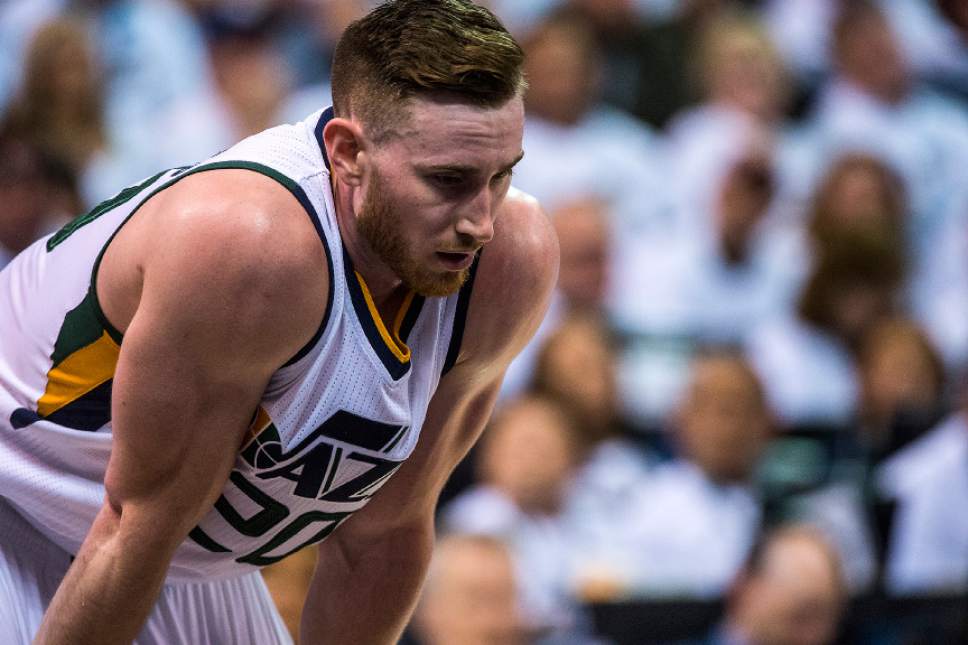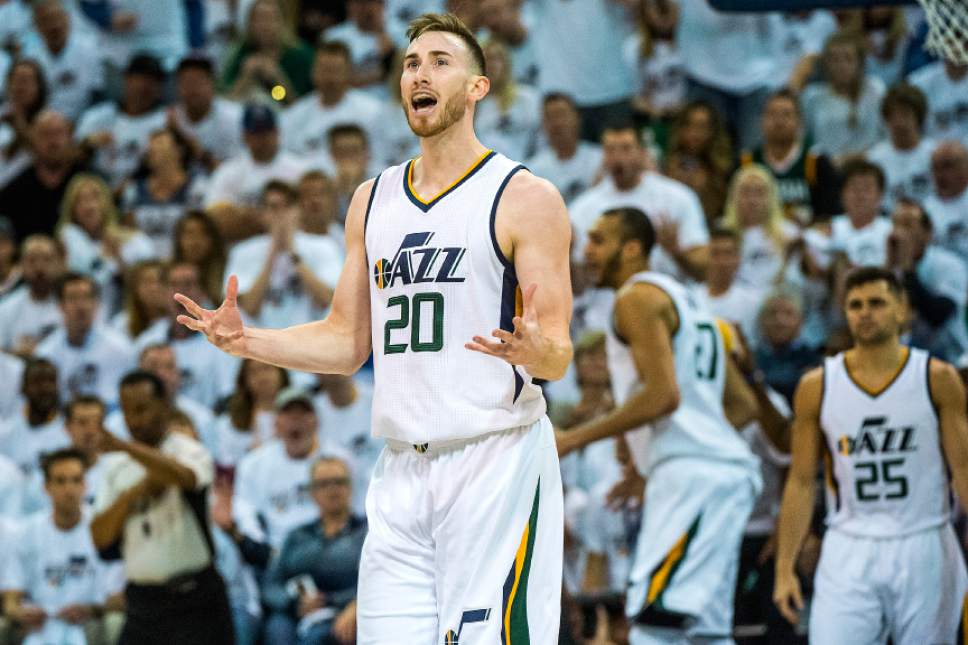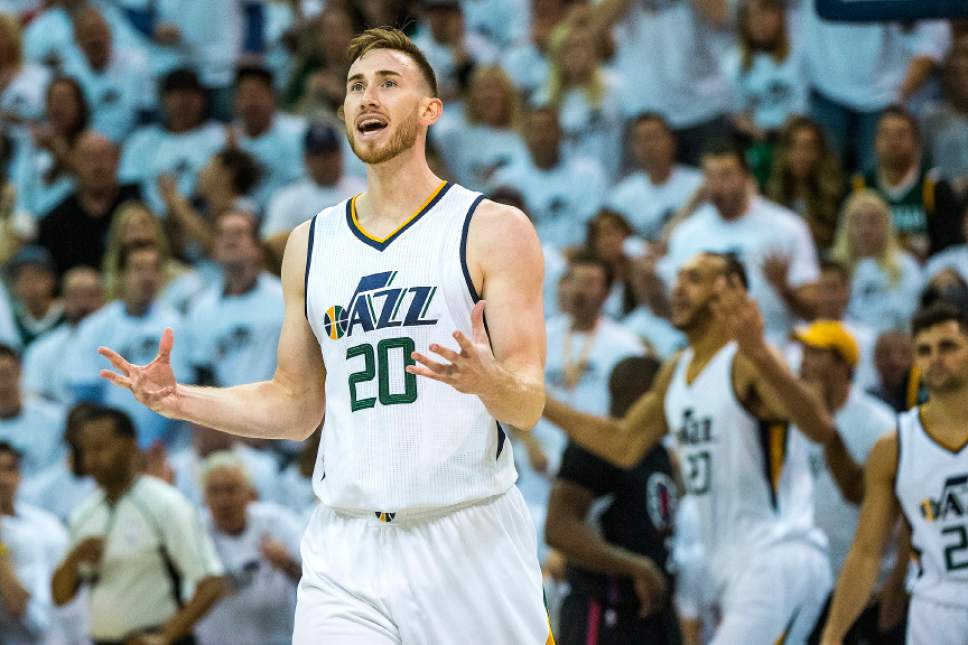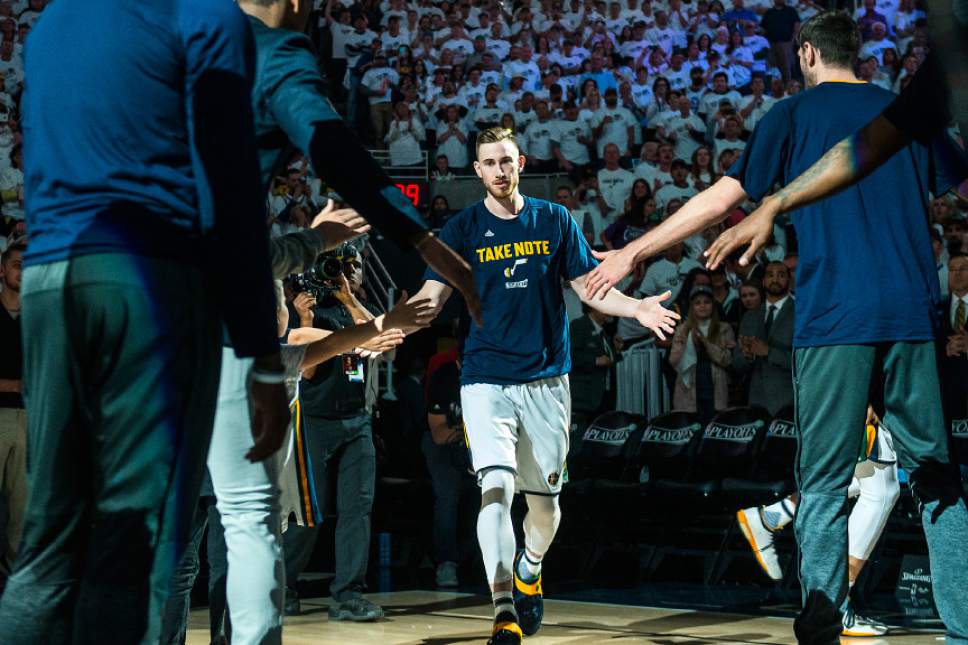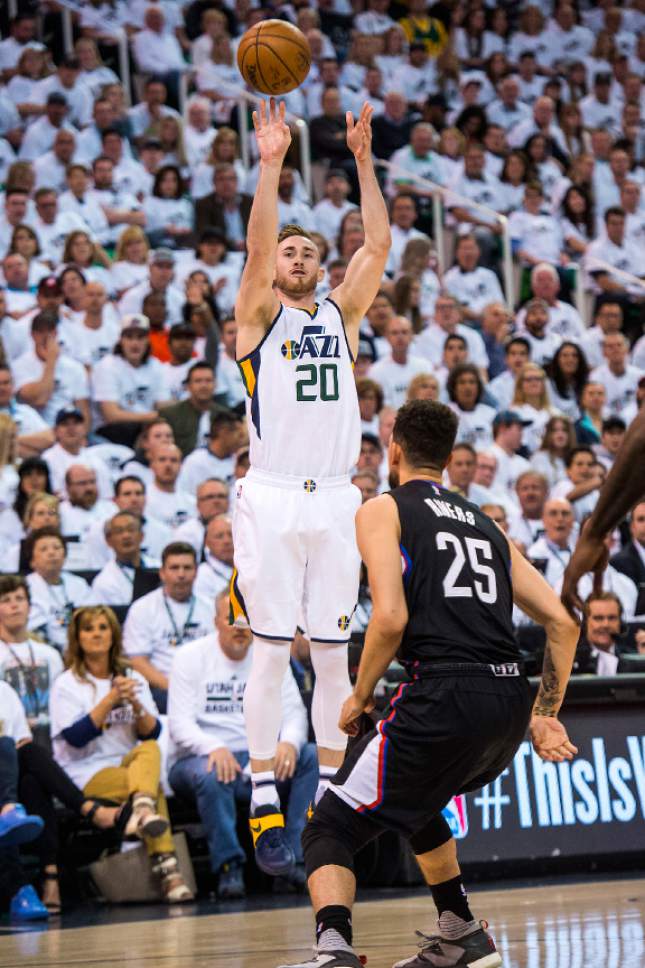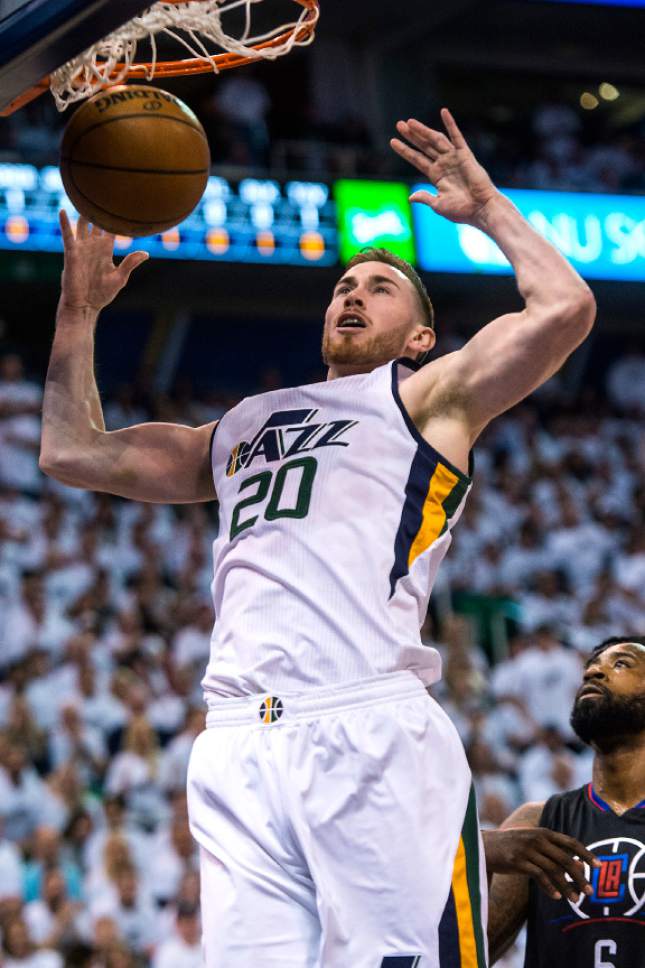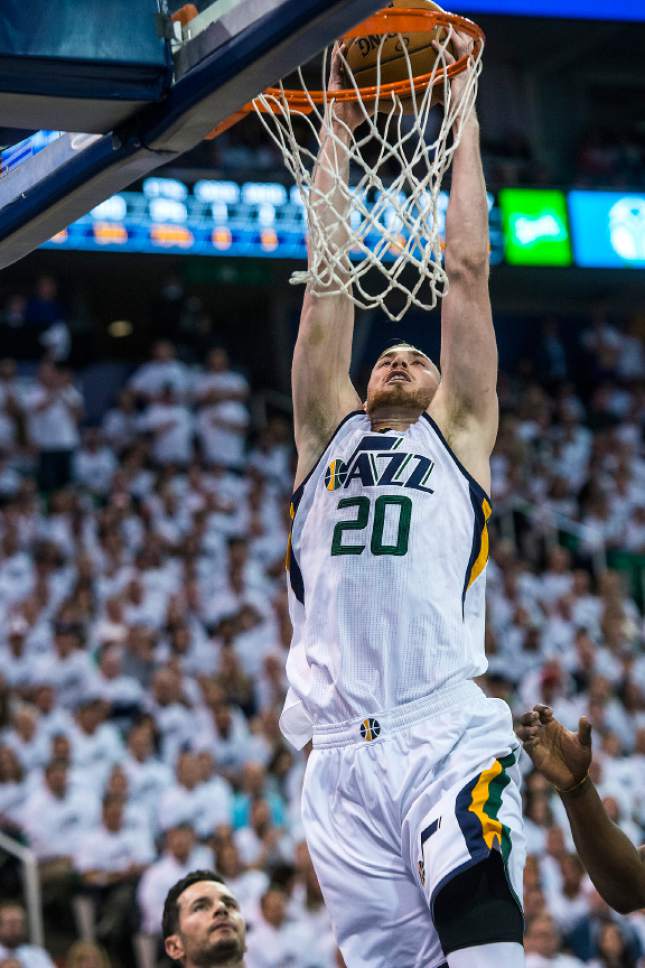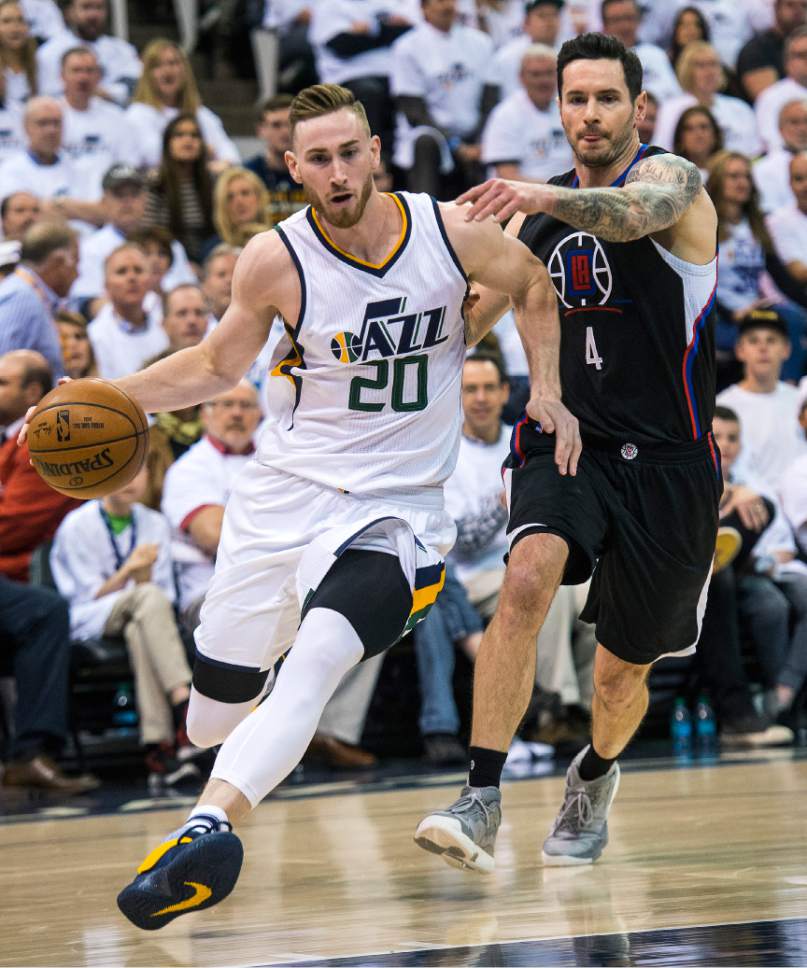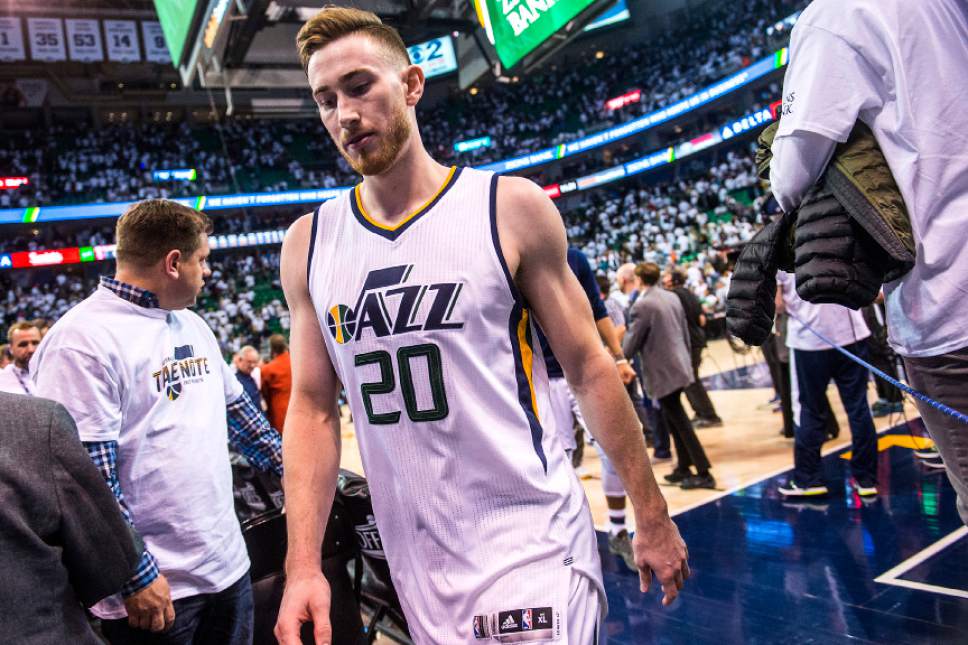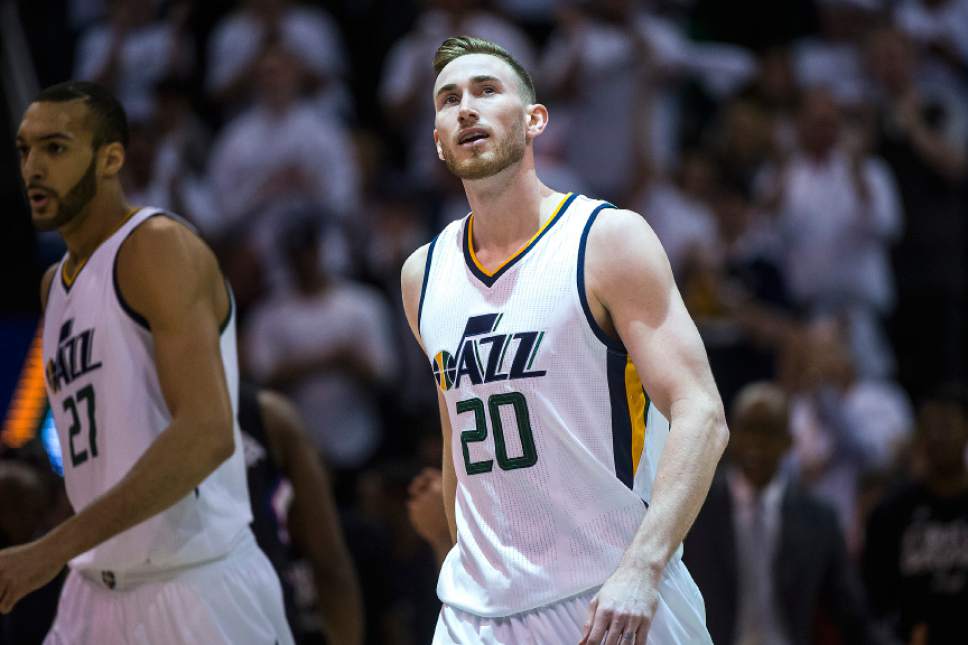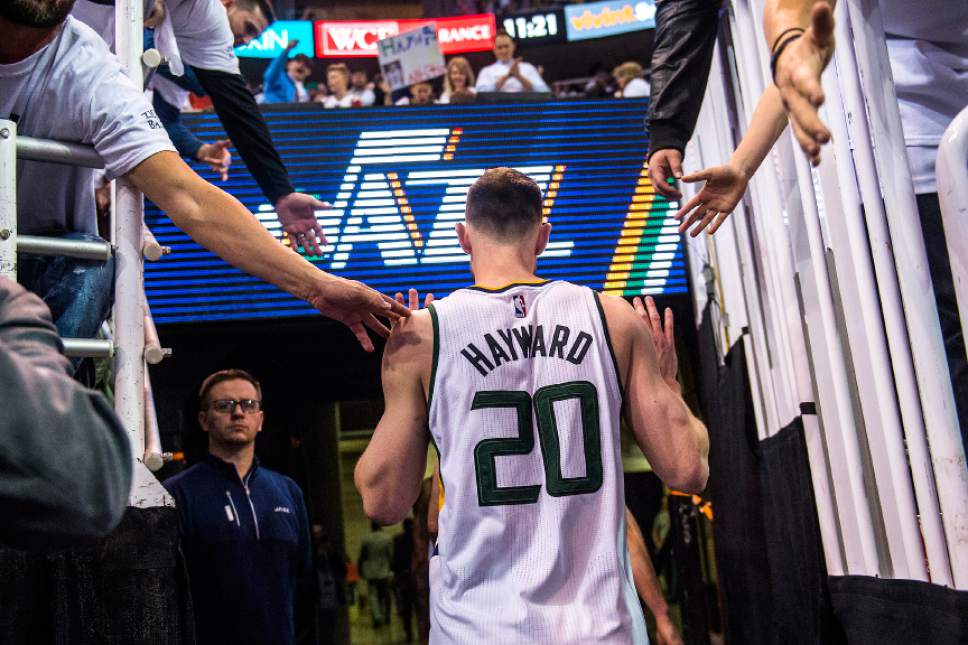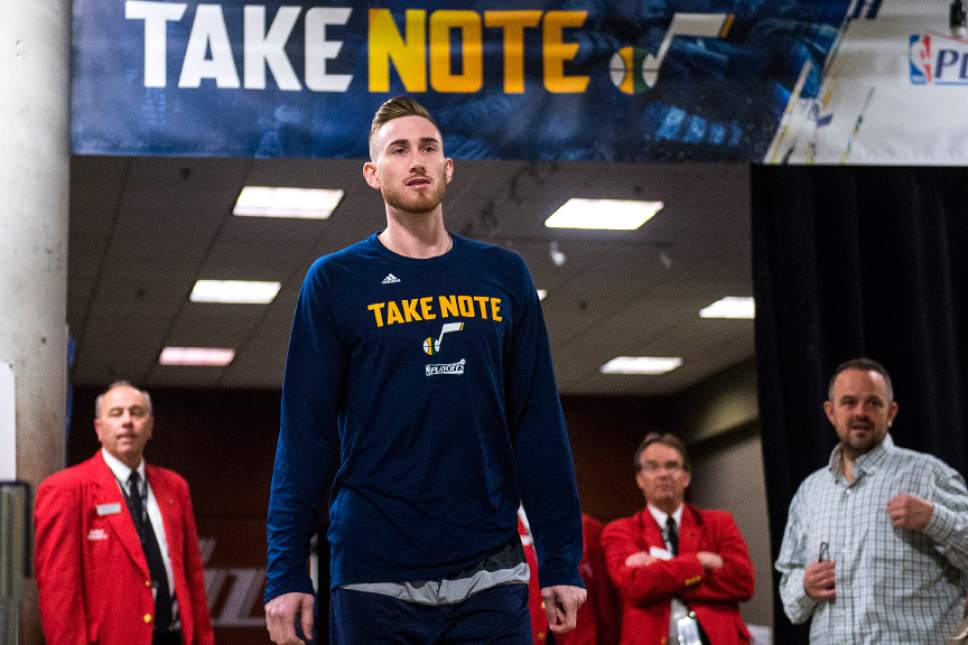This is an archived article that was published on sltrib.com in 2017, and information in the article may be outdated. It is provided only for personal research purposes and may not be reprinted.
Will Gordon Hayward stay? Will George Hill stay? Will Joe Ingles stay?
Or will they go?
And if they go, why would they go?
How could they go?
When valued NBA players reach free agency, it not only shakes the competitive foundation upon which their team is built, it can rattle the self-esteem of an entire community. If Hayward decides to leave, not only do the Jazz suffer, it's as though he rejected all the fans here who poured their emotion and support into his success.
The cultural anthropologist who said professional sports teams are the modern-day equivalent of armies of the past, representing their city or state or country in battles against other cities and states and countries, was onto something. And when those knights/soldiers up and leave, moving on to fight for a different place, it creates a communal crisis of confidence, a sense of betrayal.
What if Marcus Vipsanius Agrippa had bailed on Rome for, say, Egypt?
On the deserted end of the equation, the sensitivity to that kind of deal is elevated in Salt Lake City, where former Mavericks guard Derek Harper's words from 1997 linger, still: "You go live in Utah. I don't want to."
Not sure what they were supposed to say, but … one by one, this year's Jazz players took the mic for end-of-the-season interviews Tuesday. A question that all of them were asked was: How do you like playing and living in Utah?
Salt Lake City may be a garden spot, but it hasn't exactly been a destination for big-time NBA free agents for perceived reasons that run from the cultural to the stereotypical to the economical to the social to the meteorological to the demographical to the comical.
When Boris Diaw was asked what he liked about Utah, he answered: "The nightlife."
Classic.
For his part, Hayward rapidly listed off all the terrific things that had happened for and to him over the past seven years in Utah, saying what he always says — that he grew up here, he became a man here, he started a family here, he came to love the people here, he became an all-star here, he went from winning 25 games here to winning 51, he went to the playoffs here, he won a playoff series here.
When he was asked whether he would stay here, he stumbled and bumbled around, saying that he hadn't really thought about that. Which has to be a lie, right? How can a human being stand on the edge of one of the biggest crossroads of his life, with all the ramifications that come with it, and shove it completely out of his mind?
He can't.
Either way, he said he adores Utah, even as he failed to commit to it.
"We love the fans," he said. "We're definitely happy here in Salt Lake."
Hayward said his wife, Robyn, likes it here, as well: "It's safe. You can definitely raise a family here."
Considering the Jazz can and will offer him more money than any other team under the rules of the collective bargaining agreement, folks wonder what the hesitation is in straight embracing the opportunity, especially with him being the first option on a rising young team. It could be business, it could be something else.
But because the Jazz have those advantages, a rejection of them by Hayward for a lesser offer elsewhere would make that rejection even worse. Is this place, this situation really that bad?
Longtime NBA vet Joe Johnson was asked what he thought about coming and playing here, a place he knew little about before arriving.
"I've played in some great cities, and [Salt Lake's] a great city, as well. But for me, it was kind of stepping out of the box a little bit."
He also was asked if he'd use his persuasive power, his considerable cred among fellow NBA players, after playing in the league for 16 years, to get free agents to sign in Utah. He said he would.
Diaw talked about day hikes in the mountains, the beauty of the place and how much he'd like to stay with the Jazz.
Rudy Gobert, in answering a question about entering a new contract that will pay him $100 million, said he felt no extra pressure, the deal just proved that, "I play for an organization that believes in me and I believe in it."
Asked about Hayward's free agency, Gobert said: "I don't want to see him leave. He's a big part of our rebuilding. … We've been through a lot. He's a big part of what we're doing."
There's that aspect to it, too. Not just Utah, the geographical location, but the Utah Jazz, the team, and its potential. Gobert said he thought the Jazz could win 60 games: "We're going to do our best to be the most competitive team we can."
Said Johnson: "The talent is what brought me here. … The sky's the limit for us."
Joe Ingles said: "I love Utah. Before I came here it wasn't on my bucket list to visit. But once you get here, with [wife] Renee and the kids, it was a perfect city for us. It's kind of like where I'm from in Adelaide [Australia]. We've really enjoyed it. Hopefully there's a lot more to go."
He added: "Everyone knows I want to come back. Can't think of a better place."
He also said: "All the guys who are free this year would much rather stay."
He said he looked forward to seeing what the Jazz, when fully healthy, can do.
Ingles agreed with Hill that Hayward's heart is in Utah: "It's about winning."
Second-year player Trey Lyles said he feels completely comfortable in Utah, although his response carried some baggage: "It's a lot nicer than what you would think."
While no Utahn should hang his or her civic pride or emotional fragility on what some NBA players think, it's refreshing to hear that many of the guys who are here couldn't care less what Derek Harper said. They're more concerned about what Gordon Hayward says. They want to win and they want to stay.
GORDON MONSON hosts "The Big Show" with Spence Checketts weekdays from 3-7 p.m. on 97.5 FM and 1280 AM The Zone. Twitter: @GordonMonson.


